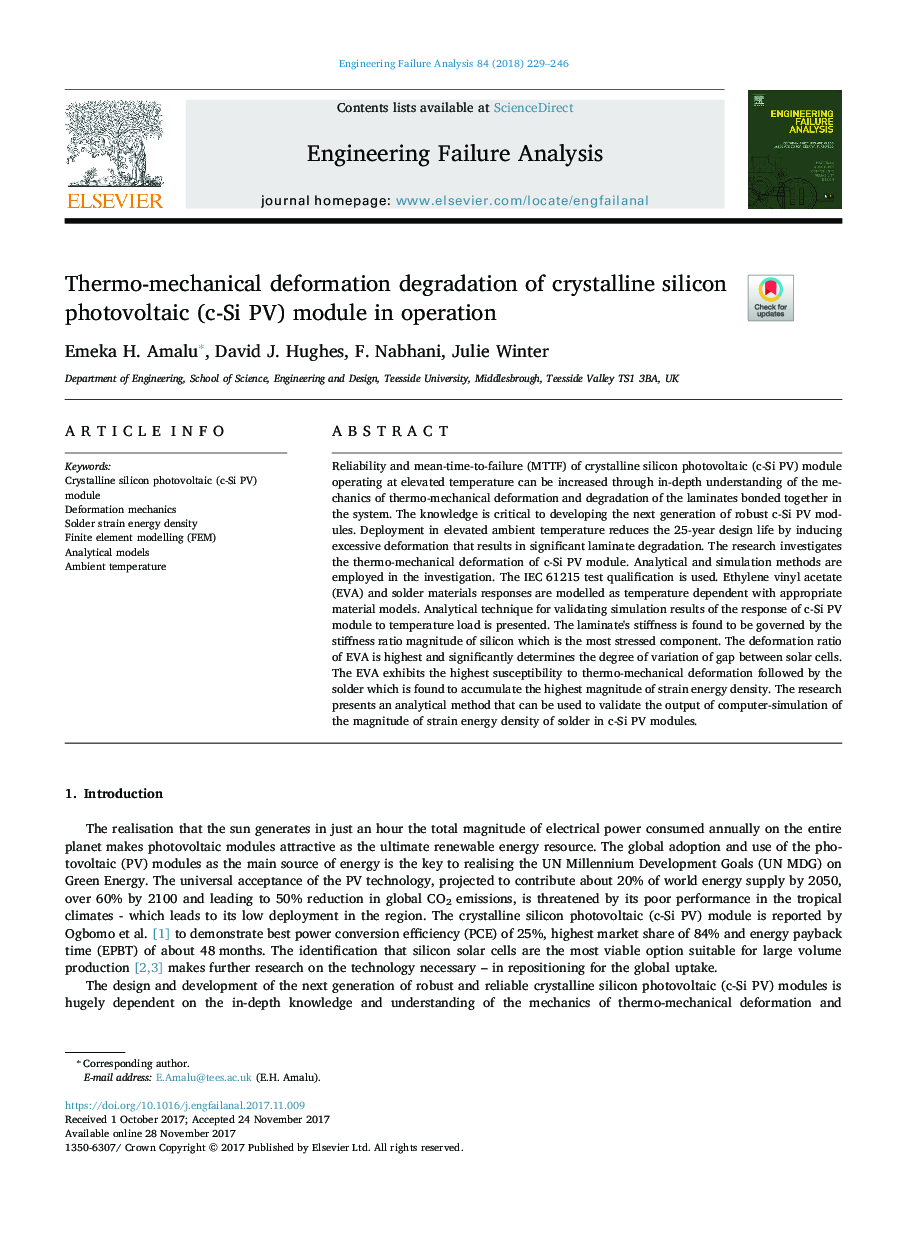| Article ID | Journal | Published Year | Pages | File Type |
|---|---|---|---|---|
| 7167666 | Engineering Failure Analysis | 2018 | 18 Pages |
Abstract
Reliability and mean-time-to-failure (MTTF) of crystalline silicon photovoltaic (c-Si PV) module operating at elevated temperature can be increased through in-depth understanding of the mechanics of thermo-mechanical deformation and degradation of the laminates bonded together in the system. The knowledge is critical to developing the next generation of robust c-Si PV modules. Deployment in elevated ambient temperature reduces the 25-year design life by inducing excessive deformation that results in significant laminate degradation. The research investigates the thermo-mechanical deformation of c-Si PV module. Analytical and simulation methods are employed in the investigation. The IEC 61215 test qualification is used. Ethylene vinyl acetate (EVA) and solder materials responses are modelled as temperature dependent with appropriate material models. Analytical technique for validating simulation results of the response of c-Si PV module to temperature load is presented. The laminate's stiffness is found to be governed by the stiffness ratio magnitude of silicon which is the most stressed component. The deformation ratio of EVA is highest and significantly determines the degree of variation of gap between solar cells. The EVA exhibits the highest susceptibility to thermo-mechanical deformation followed by the solder which is found to accumulate the highest magnitude of strain energy density. The research presents an analytical method that can be used to validate the output of computer-simulation of the magnitude of strain energy density of solder in c-Si PV modules.
Related Topics
Physical Sciences and Engineering
Engineering
Industrial and Manufacturing Engineering
Authors
Emeka H. Amalu, David J. Hughes, F. Nabhani, Julie Winter,
